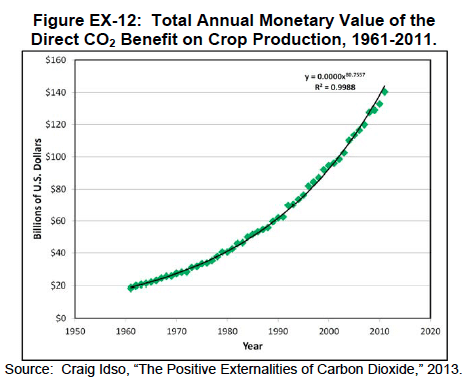
New Report Casts Doubt on Obama Administration’s ‘Social Cost of Carbon’
Taxpayers Protection Alliance
February 18, 2014

The Obama Administration is extremely aggressive when it comes to the issue of promoting and picking winners and losers. This attitude is most apparent when it comes to the energy industry. The Obama administration has been “all-in” when it comes to green energy scams like Solyndra. Their push for more LEED certification of federal buildings is just another way that special interests are promoted in the Obama presidency, regardless of the cost-benefit ration for. Last Fall, TPA wrote about the Obama Administration’s new regulatory push called ‘social cost of carbon’ and how the President (as he has done many time before) was using federal agencies to carry out policies through regulatory means that he would otherwise not be able to get through congress.
According to Reason, the social cost of carbon refers to “the economic and ecological damage caused each time we add a ton of carbon dioxide to the atmosphere by burning fossil fuels.” The hitch is that is the figures were put together in 2010 by the White House Interagency Working Group using questionable computer models and outdated information with which projections were being based upon to reach a cost assessment. The original estimation by the group and agreed upon by the Administration was recently revised upwards setting off a chain reaction that has put this issue at the forefront in Congress as many members view this as just another way to burden businesses, consumers, and taxpayers with needless and counterproductive regulations.
Now, a new report released by the American Coalition for Clean Coal Electricity has completely ripped apart the narrative that the White House has tried to stick with when it comes to their ‘social cost of carbon’ program. The report analyzed exactly how consumers and taxpayers are impacted by the use of fossil fuels and expressly criticizing the fact that these benefits are nowhere part of the metrics used to make up the formula that the administration has been using when calculating what the new regulations should be. The Hill summarized the report in a January 22nd article:
The coal industry is attacking the formula that the Obama administration used to raise the “social cost” of carbon in regulations, arguing it does not account for the economic benefits of fossil fuels.
A new study from the American Coalition for Clean Coal Electricity (ACCCE) says the benefits of carbon are 50 to 500 times greater than the “social costs” of polluting calculated by federal agencies.
The report says energy production from fossil fuels over the last two centuries has more than doubled life expectancy and improved the quality of life for people around the world.
The report contains a great deal of information detailing the problems with the formula but also just how beneficial fossil fuels have been for the economy. This isn’t just domestic, as the report goes further showing the relationship between World GDP and CO2 emissions over the last five decades. It is crystal clear that there is “a strong relationship between world GDP and the CO2 emissions from fossil fuels.” One chart shows that anywhere from $60-$70 trillion in world GDP is created annually from carbon emissions. Specifically, when looking at the United States and how consumers are impacted, the results are extremely important when looking at how much people are paying for their electricity:
The salient point is that the relationship between electricity prices and the economy is negative: Programs and policies that increase electricity prices – in a city, state, region, or nation –– over what they would be otherwise will have adverse affects on the economy and jobs, and vice versa. We determined that a reasonable electricity elasticity estimate is -0.1, which implies that a 10 percent increase in electricity prices will result in a one percent decrease in GDP. Thus, for example, in a state such as Colorado where GSP is currently about $275 billion, a 10 percent increase in the electricity price will (other things being equal) likely result in about a $2.8 billion decrease in Colorado GSP.

The story here should be that the Obama Administration, once again, is putting politics over the good of consumers and taxpayers when it comes to policy. There is a familiar pattern here and we’ve seen it many times and specifically on energy policy. President Obama refuses to recognize that entrepreneurs, consumers and taxpayers should be able to make the choices they want that are available to them when it comes to what light bulbs they want to use, what gas they want to fill up with, what cars they want to drive, and how they want to make their own homes and businesses more energy efficient.
